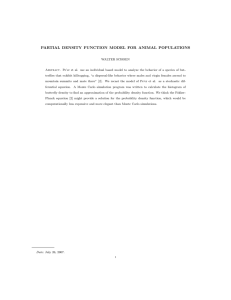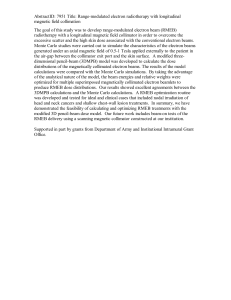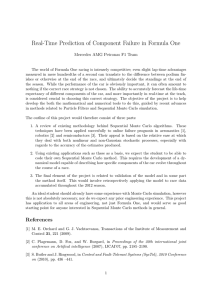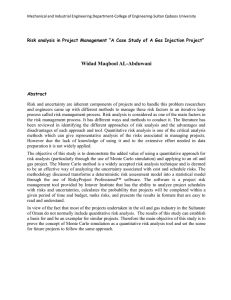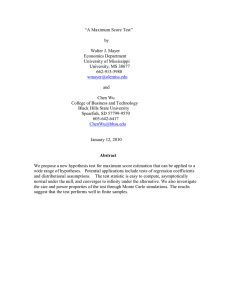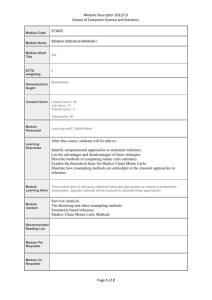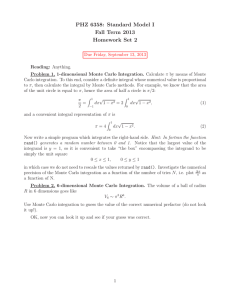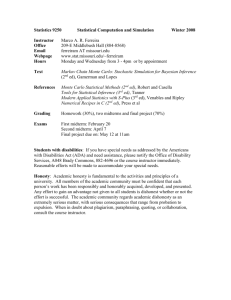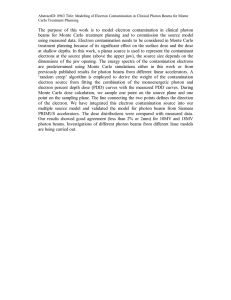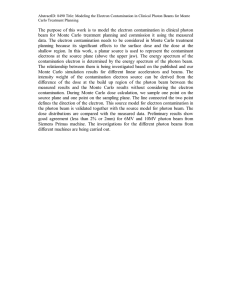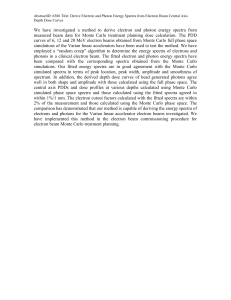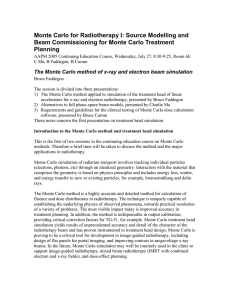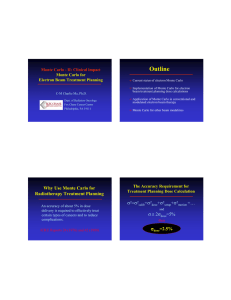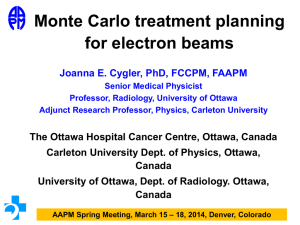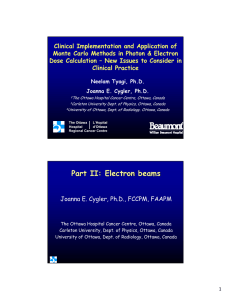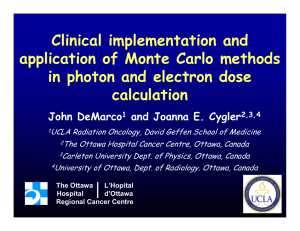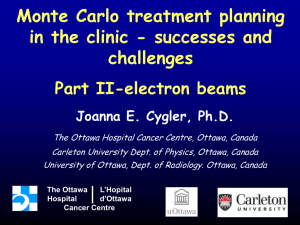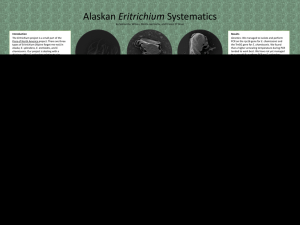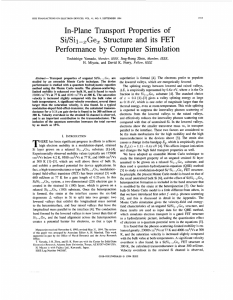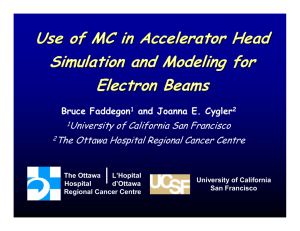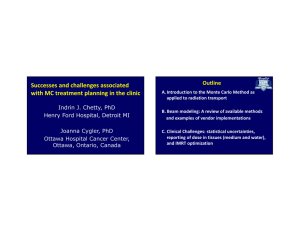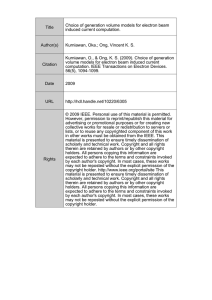MONTE CARLO MODELS OF ELECTRON TRANSPORT Fall 2004 Seminar Series
advertisement
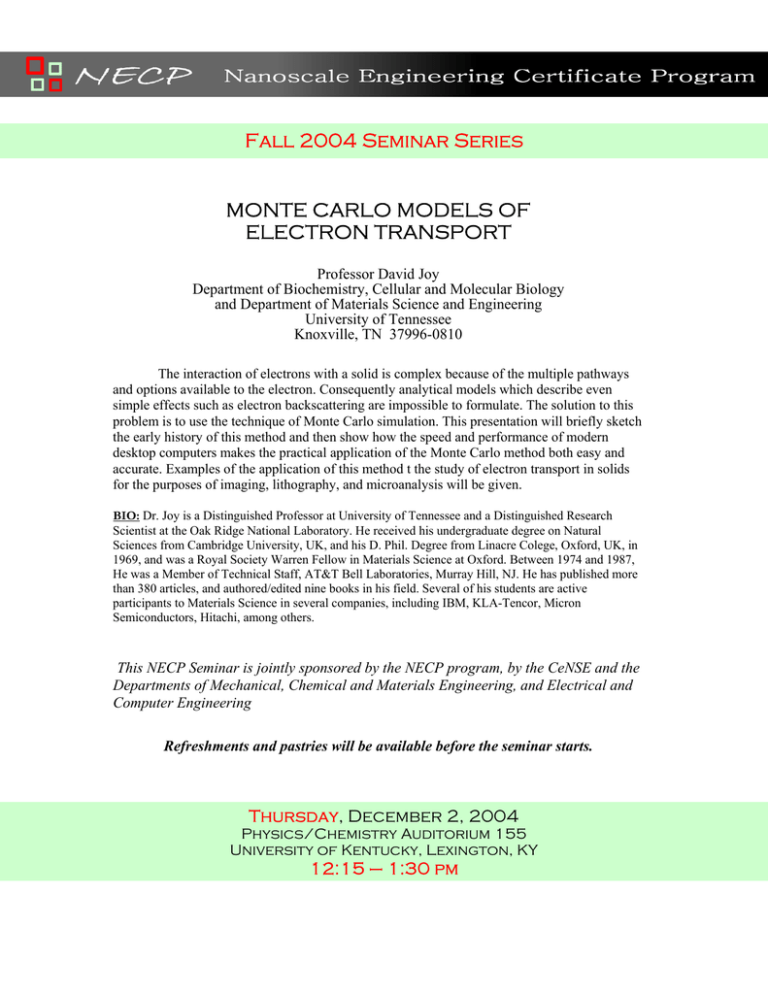
Fall 2004 Seminar Series MONTE CARLO MODELS OF ELECTRON TRANSPORT Professor David Joy Department of Biochemistry, Cellular and Molecular Biology and Department of Materials Science and Engineering University of Tennessee Knoxville, TN 37996-0810 The interaction of electrons with a solid is complex because of the multiple pathways and options available to the electron. Consequently analytical models which describe even simple effects such as electron backscattering are impossible to formulate. The solution to this problem is to use the technique of Monte Carlo simulation. This presentation will briefly sketch the early history of this method and then show how the speed and performance of modern desktop computers makes the practical application of the Monte Carlo method both easy and accurate. Examples of the application of this method t the study of electron transport in solids for the purposes of imaging, lithography, and microanalysis will be given. BIO: Dr. Joy is a Distinguished Professor at University of Tennessee and a Distinguished Research Scientist at the Oak Ridge National Laboratory. He received his undergraduate degree on Natural Sciences from Cambridge University, UK, and his D. Phil. Degree from Linacre Colege, Oxford, UK, in 1969, and was a Royal Society Warren Fellow in Materials Science at Oxford. Between 1974 and 1987, He was a Member of Technical Staff, AT&T Bell Laboratories, Murray Hill, NJ. He has published more than 380 articles, and authored/edited nine books in his field. Several of his students are active participants to Materials Science in several companies, including IBM, KLA-Tencor, Micron Semiconductors, Hitachi, among others. This NECP Seminar is jointly sponsored by the NECP program, by the CeNSE and the Departments of Mechanical, Chemical and Materials Engineering, and Electrical and Computer Engineering Refreshments and pastries will be available before the seminar starts. Thursday, December 2, 2004 Physics/Chemistry Auditorium 155 University of Kentucky, Lexington, KY 12:15 – 1:30 pm
